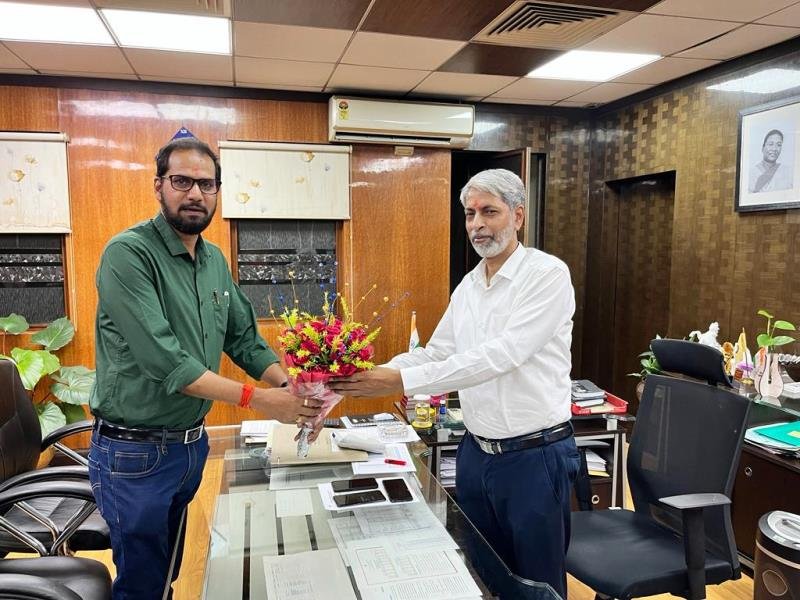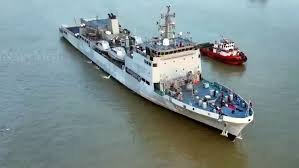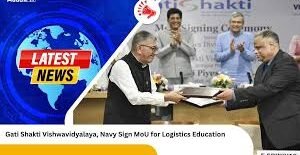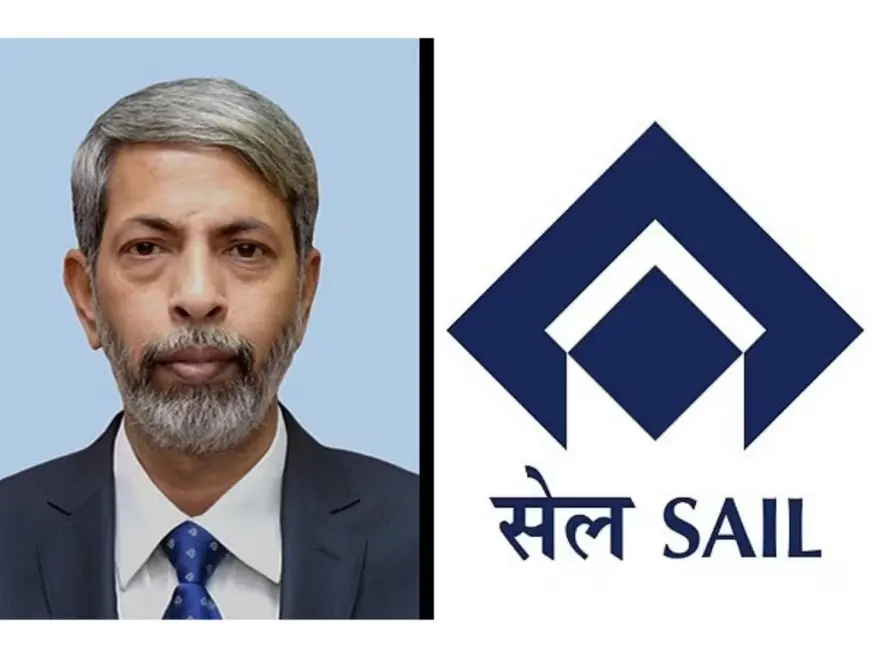Amarendu Prakash Takes Charge as SAIL Chairman
The Steel Authority of India Limited (SAIL) witnessed a significant change in its leadership as Mr. Amarendu Prakash recently took charge as the new Chairman of SAIL. This appointment has sparked considerable interest among aspirants preparing for government exams, particularly those targeting positions in the steel industry or related sectors. In this article, we will delve into the details of Mr. Prakash’s appointment, his background, and the potential implications for SAIL and the steel sector as a whole.

Why this News is Important:
Leadership Transition in SAIL
The appointment of Mr. Amarendu Prakash as the Chairman of SAIL signifies a significant leadership transition within the organization. This news is important for government exam aspirants as it highlights the dynamic nature of government organizations and the relevance of staying updated with current affairs. Leadership changes often bring new perspectives, strategies, and potential policy shifts, which can have implications for exams that test candidates’ understanding of organizational structures and current developments.
Implications for Aspirants and Job Seekers
The appointment of a new Chairman in a prominent government organization like SAIL has implications for aspirants and job seekers targeting positions in the steel industry or related sectors. Knowledge of this news demonstrates an awareness of industry trends and organizational changes, which can be beneficial in exams that evaluate candidates’ understanding of the sector. Additionally, it may also influence job opportunities, as aspirants who stay updated with such news can showcase their knowledge and adaptability during interviews or selection processes.
Significance for the Steel Industry
The appointment of Mr. Prakash as the Chairman of SAIL holds significance for the broader steel industry. His expertise and strategic vision can potentially drive advancements in technology, operational efficiency, and sustainability practices. Understanding the potential impact of his leadership on the industry is important for government exam aspirants, particularly those aiming for positions in the steel sector or related government departments. It demonstrates a deeper understanding of the industry landscape and its ongoing developments.
Historical Context: Evolution of SAIL and Key Milestones
To understand the historical context related to the appointment of Amarendu Prakash as the Chairman of SAIL, it is essential to delve into the evolution of the Steel Authority of India Limited and key milestones in its history. This historical background provides insights into the organization’s growth, achievements, and its position within the steel industry.
SAIL was established on January 19, 1954, as a public sector undertaking under the Ministry of Steel, Government of India. The organization was formed by amalgamating several existing steel companies, including Rourkela Steel Plant, Durgapur Steel Plant, Bhilai Steel Plant, and Bokaro Steel Plant. These plants were strategically located in different regions of the country to cater to the growing demand for steel.
Over the years, SAIL played a vital role in the development of the Indian steel industry. It expanded its production capacity, introduced advanced technologies, and contributed to infrastructure development across various sectors. SAIL’s steel plants became significant contributors to the country’s economic growth and self-sufficiency in steel production.
Some key milestones in the history of SAIL include the modernization and expansion of its steel plants, the introduction of new product lines, and the adoption of sustainable practices. The organization focused on improving productivity, enhancing product quality, and exploring export opportunities to strengthen its position in the global steel market.
Additionally, SAIL underwent strategic disinvestments and implemented reforms to increase operational efficiency and competitiveness. The organization embraced technological advancements and innovation to meet the evolving needs of the industry and customers.
Understanding the historical context of SAIL is crucial for government exam aspirants, particularly those aiming for positions in the steel industry or related government departments. It provides a broader perspective on the organization’s journey, its contributions to the nation’s industrial development, and its commitment to sustainable growth.
By familiarizing themselves with the historical context of SAIL, aspirants can showcase a comprehensive understanding of the organization, its evolution, and the challenges it has overcome. This knowledge can be valuable in exams that assess candidates’ knowledge of current affairs, industrial developments, and the economic landscape of the country.
Key Takeaways from “Amarendu Prakash Takes Charge as SAIL Chairman”:
| Serial Number | Key Takeaway |
|---|---|
| 1 | Mr. Amarendu Prakash has been appointed as the Chairman of SAIL, marking a significant leadership transition in the organization. |
| 2 | His extensive background in the steel sector and leadership experience positions him well to drive SAIL’s growth and strategic initiatives. |
| 3 | Aspirants targeting positions in the steel industry should be aware of this appointment and its potential implications for job opportunities and industry trends. |
| 4 | Mr. Prakash’s expertise can contribute to advancements in technology, operational efficiency, and sustainability practices within the steel sector. |
| 5 | Staying updated with current affairs, such as leadership changes in prominent government organizations like SAIL, is essential for government exam preparation in various fields. |
Important FAQs for Students from this News
Q: What is the significance of Amarendu Prakash’s appointment as the Chairman of SAIL for government exam aspirants?
A: The appointment is significant as it sheds light on leadership changes in a prominent government organization, which is often a topic of interest in exams.
Q: What are the key responsibilities of the Chairman of SAIL?
A: The Chairman of SAIL is responsible for strategic decision-making, overseeing operations, driving growth, and representing the organization at various levels.
Q: How can knowledge of current affairs, such as the appointment of Amarendu Prakash, benefit aspirants preparing for government exams?
A: Knowledge of current affairs demonstrates an awareness of recent developments, which is often tested in exams and can enhance candidates’ overall preparation.
Q: What implications might Amarendu Prakash’s appointment have on the steel sector as a whole?
A: His expertise and strategic vision can potentially drive advancements in technology, operational efficiency, and sustainability practices across the steel industry.
Q: How can aspirants leverage information about SAIL’s leadership transition in their exam preparations?
A: Understanding the implications of leadership changes in organizations like SAIL can provide insights into industry trends, job opportunities, and the evolving dynamics of the sector.
Some Important Current Affairs Links













